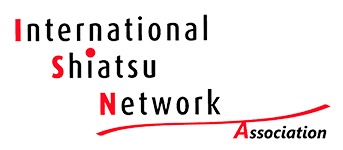Definition of Shiatsu
1. Shiatsu is an autonomous and natural system of energetic touch to support the human health, well-being and personal development.
2. Shiatsu has its roots in Japan (shi=finger, atsu=pressure). It was integrated into the western culture and became very popular all over the world.
3. The understanding of life and health in Shiatsu is based on the ancient far-eastern philosophy and their principles.
4. Shiatsu is offered to a person by applying shiatsu-specific techniques such as perpendicular, kept and steady/constant energetic touch with fingers (especially thumbs), palms, elbows and knees.
5. Aims of Shiatsu are:
- to stimulate the self-regulation system of the organism
- to release energetic tensions and blockages
- to support the natural and free flow of the vital energy
- to balance the energetic system of a person as a wholeness (body and mind)
- to increase self-awareness and the self-responsibility to take care for the health.
6. Shiatsu is applied in different fields of applications. It can help and accompany people in their processes
- to maintain and promote health
- to recover from physical and psychical health disharmonies
- to gain deep relaxation of body and mind
- to get into contact with the body and inner self
- to be supported during life crisis and in difficult situations
- to develop their potential.
7. Shiatsu as a profession demands specific competences such as
- application of specific techniques to recognize and describe a person’s state of energy as base of the work
- adequate use of shiatsu techniques according to a given situation with a person
- ability to be empathic, relaxed, centred, aligned and concentrated during the whole treatment
- ability to support people in their personal process
- readiness for own personal processes and the development of the professional quality
8. The national Shiatsu associations define the professional profile of Shiatsu and the competences, which have to be gained in the training. They support and guarantee the quality of their members by demanding adequate standards, particularly the respect of the code of ethics. They coordinate the development of Shiatsu as a profession on an international level.
